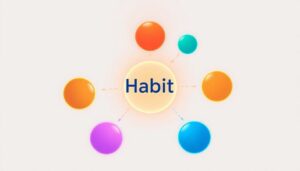Many think ignorance hampers performance or progress. But what if uncertainty isn’t your enemy? What if “not knowing” could be your secret weapon? In our information-flooded world, could there be value in embracing what you don’t know?
Embracing Uncertainty: Why “Not Knowing” Can Be A Strategic Asset
The Psychology of “Not Knowing”
Humans typically avoid ambiguity—our minds crave certainty. We suffer from biases like ambiguity aversion that make us fear the unknown. But those who see gaps in knowledge as opportunities rather than barriers can think outside conventional boxes. Acknowledging you don’t have all answers grants permission for extraordinary creativity.
Wielding Humility and Growth Mindset
Recognizing you don’t know everything is remarkably powerful. It fosters humility that accelerates personal and professional growth. Leaders who admit limitations adapt and learn faster. Consider Mary, a startup founder who found that embracing uncertainty expanded her horizons—she now asks more questions, listens better, and encourages her team to explore new avenues.
Not Knowing: The Spark of Curiosity and Innovation
Knowledge gaps are where innovation thrives. When you hit walls, you’re forced to think differently—this is when breakthroughs occur. Silicon Valley’s innovative culture demonstrates how curiosity about the unknown drives progress.
The Hidden Benefits of Not Having All the Answers
Accelerated Learning and Adaptability
When you stop assuming you know everything, curiosity flourishes. This mindset enables faster learning and better adaptation as you continuously acquire new skills and ideas.
Reduced Stress and Decision Paralysis
Accepting you can’t know everything reduces stress. The quest for perfect answers creates pressure. Simple techniques like breaking big issues into smaller steps or practicing breathing exercises can ease anxiety about the unknown.
Building Resilience Through Uncertainty
The COVID-19 pandemic proved that resilience emerges not from having all answers, but from adapting and moving forward despite uncertainty.
Overcoming the Fear of Not Knowing
Common fears include anxiety about failure, judgment, and unpredictable outcomes. Society often equates not knowing with weakness, but these fears are natural. The key is managing them so they don’t paralyze us.
Practical Ways to Leverage ‘Not Knowing’
- Take small steps: Practice mindfulness and ask questions daily
- Create curiosity-friendly spaces: At work or home, encourage “why” and “what if” questions
- Reward experimentation: Value trial and error over perfect answers
“Psychologists emphasize that handling uncertainty is about managing your response, not the unknown itself. Business leaders note that admitting what you don’t know builds trust and encourages collaborative problem-solving.”
Practical Applications in Daily Life and Business
Personal Growth and Decision Making
With uncertainty, you can explore complex problems without rushing to solutions. Ask yourself: “What’s the worst that could happen?” or “What can I learn from this?” Such exercises build comfort with unanswered questions.
Innovation and Entrepreneurship
Successful startups thrive on flexibility—testing ideas, learning from failures, and pivoting. A “learning mindset” culture fosters continuous growth where failures become valuable lessons that encourage risk-taking.
Leadership in Uncertain Times
Great leaders admit what they don’t know. Voicing doubts and involving teams in strategic decisions builds trust and motivation. Teams feel safer when leaders demonstrate comfort with uncertainty.
Conclusion
Viewing “not knowing” as an advantage transforms your life—it sparks creativity, learning, and resilience. Instead of fearing uncertainty, face it. Small steps toward comfort with the unknown yield mastery that benefits every life domain. In our unpredictable world, knowing how not to know may be your most valuable strategy.



